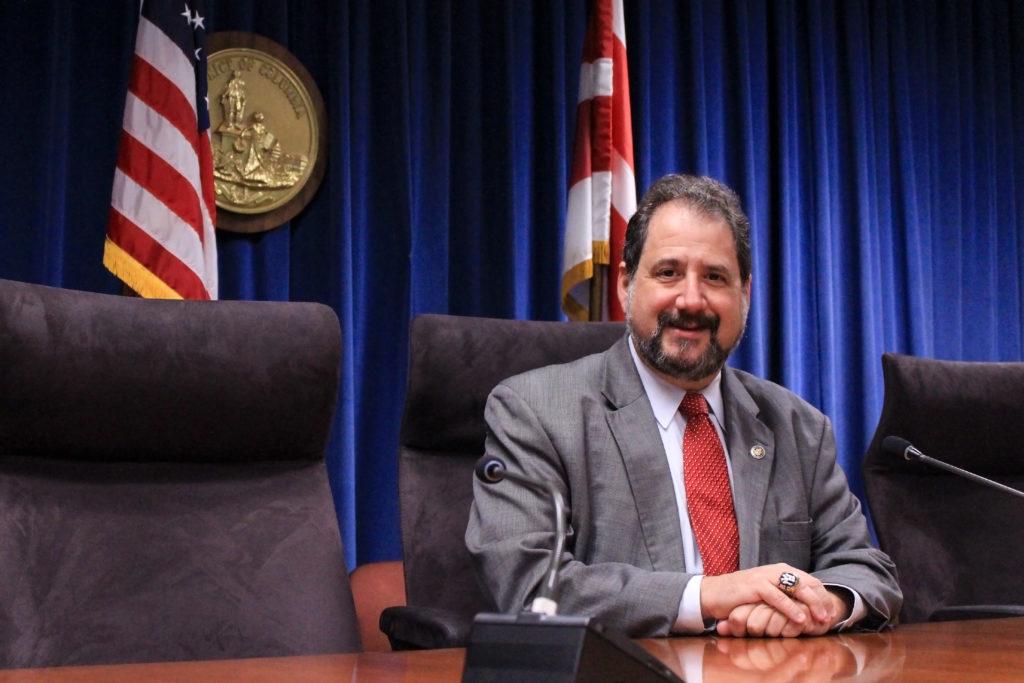Updated: March 9, 2017 at 1:56 a.m.
Four months since 80 percent of D.C. residents voted in favor of D.C. becoming a state, a Republican Congress stands in the way of statehood.
Although it is unlikely the bill Rep. Eleanor Holmes Norton, D-D.C., proposed last Wednesday will pass a Republican Congress and president, D.C. officials and statehood supporters said they will continue to counter House Republicans who attempt to intervene with local politics, and that they will make the statehood campaign national.
“It’s an uphill climb, and we know that, but the bill keeps the momentum going for statehood when we have the requisite parties in place,” Norton said in an interview.
Norton presented the Washington D.C. Admission Act with 60 percent of Democrats in the House of Representatives as original co-sponsors, after introducing seven similar bills that were unsuccessful in past Congresses, Norton and Benjamin Fritsch, her communications director, said.
Norton said leaders of the movement are working to get more Democratic support and expect most Democrats to sign on as additional co-sponsors by the end of the year. She added that no Republicans currently support the bill, which she expected because of contention between parties.
Republicans have historically opposed statehood – D.C. is heavily liberal, guaranteeing Democrats additional votes in Congress if the District were to become a state. And the move would strip federal lawmakers of their ability to pass legislation that impacts D.C. – a move by legislators who want to curry favor without having to pass national laws.
The purpose of proposing the bill was not to get it through the Republican Congress – a goal Norton said will not be reached – but to keep the effort moving forward and to put more pressure on Republicans, she said.
The District has a larger population than two states and pays more in federal taxes than 22 states, according to The Washington Post. Even though the District has a Congressional representative, Norton is only able to vote in committees and not on the House floor.
But a legislative approach may not be possible as long as Republicans hold the majority – GOP leaders stated in the party platform at July’s Republican National Convention that D.C.’s statehood should be earned through a Constitutional amendment, with 75 percent of states approving the measure.
D.C. Shadow Senator Paul Strauss said for now, he and other statehood leaders will combat what he calls an intrusion into local politics and gain more support across the country so the effort might succeed during the next session of Congress.
“The immediate plans in this session of Congress are to be successful at beating back Congressional intrusion into the home-rule affairs of the District,” he said.
The House Oversight and Government Reform Committee, chaired by Rep. Jason Chaffetz, R–Utah, attempted to strike down a “death by dignity” bill, designed to allow doctors to prescribe life-ending drugs to terminally ill patients, last month. But that bill never made it to the House floor, and the law went into effect Feb. 18, The Washington Times and the Post reported.
Chaffetz did not respond to request for comment.
Under the Home Rule Act passed in 1973, Congress reviews and approves all D.C. legislation and its budget.
Strauss said he thought Congress’ attempts to stop the assisted suicide bill were an inappropriate intervention in local government.
“I expect that Congress will cause problems for the District of Columbia any chance it gets because they seem more focused on micromanaging one jurisdiction instead of solving problems for the entire country,” he said.
Some District residents have combatted what they call Republican overreach into local government affairs.
Josh Burch, the co-founder of Neighbors United for DC Statehood, said that in the past two months, D.C. residents and citizens of other states have contacted his organization asking how they can help.
Burch said his organization will continue to find co-sponsors and “that one brave Republican” to support the bill.
“People are realizing that only statehood will set free and if we want it we have to work for it and work hard for it,” he said.




